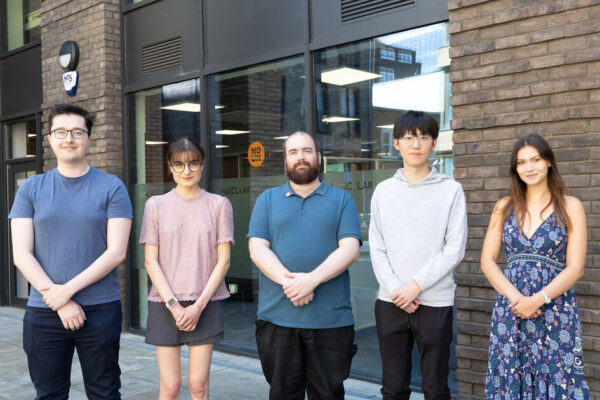On Monday 8 October 2024, the company, Scholar Rock announced promising results from its phase 3 clinical trial – called the SAPPHIRE study – in people with spinal muscular atrophy (SMA).
Phase 3 clinical trial, the SAPPHIRE study, shows promising results in treating SMA

What was the study?
SAPPHIRE was a randomised, double-blind, placebo-controlled Phase 3 clinical trial that evaluated the safety and efficacy of the treatment apitegromab in non-ambulatory patients with Types 2 and 3 SMA who are receiving current standard of care (either the drugs nusinersen or risdiplam). The trial was testing whether apitegromab was safe and effective in people with either type 2 or type 3 SMA who couldn’t walk.
The study compared apitegromab against current ‘standard of care’, which means the participants were also receiving their regular treatment or either nusinersen (Spinraza) or risdiplam (Evrisdi). Some people on the trial received placebo, that means that they continued to be treated with Spinraza or Evrysdi as normal but they did not receive apitegromab.
SAPPHIRE enrolled 156 participants with SMA type 2 or 3 aged two-12 years old in the main study. A smaller group of 32 participants aged 13-21 years old was also evaluated to see if they showed a similar response.
The main thing that the company was testing (the primary endpoint) was whether there was an improvement in movement (motor function) in people who received apitegromab. The movement was measured using the Hammersmith Functional Motor Scale Expanded (HFMSE), which is a test that is commonly used to evaluate people with SMA.
What did the study show?
The results from the trial showed that there was improvement in the HFMSE in people who were treated with apitegromab. Treatment with apitegromab was well-tolerated across all ages that received it and there were no new safety findings in the study.
What does this mean for people in the UK?
The company has said that it will continue to analyse the results of the trial and will report on these early in 2025. It will also start talks with the Food and Drug Administration (FDA) in the United States and the European Medicines Agency about getting the drug licenced.
The health authority in the UK responsible for issuing marketing authorisations (the licence) for medicines is the Medicines & Healthcare Products Regulatory Agency (MHRA), not the FDA. We have contacted the company to ask when they will reach out to the MHRA. We will update you when we know more.
SMA is a rare, genetically inherited neuromuscular condition. It causes progressive muscle weakness and loss of movement due to muscle wasting (atrophy). This may affect crawling and walking ability, arm, hand, head and neck movement, breathing and swallowing.
There are different forms of SMA and a wide spectrum of how severely children, young people and adults are affected.
Read more about it in the Scholar Rock press release.
Learn more
-
- A placebo is an inactive substance designed to resemble the treatment being tested
-
- Randomised means that the participant might be given the treatment or the placebo
-
- Double-blind means that neither the participant, nor the doctors carrying out the trial know whether the participant is being given the treatment or the placebo.
Apitegromab is not yet licenced and can only be used in clinical trials. It is a monoclonal antibody that stops the activation of a protein called myostatin. Myostatin is expressed primarily by skeletal muscle cells, and the absence of its gene is associated with an increase in muscle mass and strength in multiple animal species, including humans. Scholar Rock believes that blocking the action of myostatin with apitegromab may lead to a clinically meaningful improvement in motor function in patients with SMA.

